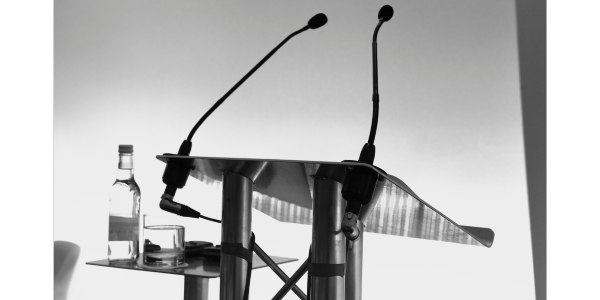Another Margaret, this time the United Kingdom’s first female Prime Minister, Margaret Thatcher, was a woman of strong convictions who made no concessions to political correctness. When asked to change her mind on a question of principle, she retorted, “The lady’s not for turning,” a pun on the title of a play then popular. For a lady she truly was, in her hairstyle, dress and deportment. When an Opposition Member of Parliament came to ask a favour from her, he was not only denied, but humiliated. He later admitted to his colleagues in a memorable mot juste, “I was handbagged.” No man, needless to say, could have done this to him.
The accolade for the most inspirational use of the mot juste in English belongs to that great orator Sir Winston Churchill, who famously “mobilized the English language and sent it into battle.” In his tribute to the Battle of Britain pilots who repelled the Nazi Luftwaffe in the dark days of 1940 and saved the nation from invasion, he declared, “Never in the field of human conflict was so much owed by so many to so few.” In fact, his mot juste for these heroic young men has been immortalized: these Royal Air Force pilots are now known as “the Few” decades later. The contrast between “many” and “few” can never have been so properly emphasized.
The Australian writer Anthony McCarten has analyzed in painstaking detail in his book and film by the same title, Darkest Hour, the “timely words, exquisite phrases, superb sound-bites that would have been just as memorable to an audience one thousand years in the past as one thousand years in the future” spoken by Churchill, “who believed in the core of his rather poetic soul, that words mattered … and could intercede to change the world.” Among these memorable mots justes, McCarten detects the influence of such practitioners of rhetoric as the Greek Socrates, the Roman Cicero, Lord Byron, John Donne, Robert Browning, and even Teddy Roosevelt and the Italian Garibaldi in Churchill’s famous 1940 House of Commons speech “I have nothing to offer you but blood and toil, tears and sweat.” Yet these words had the power “to stiffen the sinews” and “summon up the blood” for the fearsome struggle ahead, just as Shakespeare’s Henry V does for his warriors before the Battle of Agincourt in 1415. Mr. McCarten examines another speech of Churchill’s, similar in its dramatic effect on its hearers, one in which his understanding of anaphora, the repetition of a single word of power, reveals itself. Churchill himself, in his History of the English-Speaking Peoples, drew readers’ attention to a speech by Prime Minister William Pitt in 1800 in which his warning about the belligerence of Napoleon is underlined by Pitt’s repetition of the word “danger” five times in four sentences. Churchill himself, McCarten points out in a quotation from the historian Richard Toye, does the same with “the repetition of (the) word ‘victory’ five times within one sentence (which) created an impressive sense of Churchill’s single-mindedness and determination.” McCarten then details Churchill’s use of ‘we,’ ‘us’, and ‘our’ in order to unify his audience in the face of the threat from Hitler’s “egomania.” The effect of this was “a rapturous response the following day” in the House of Commons. Churchill’s facility with words, later to earn him the 1953 Nobel Prize in Literature, was his great gift to us today. Nazism was crushed, Hitler a miserable suicide, and the Third Reich obliterated. Such is the power of words used well to rouse a righteous spirit to oppose evil. Evil is always with us, and eternally needs to be opposed.
It is thus hard to understand the Ontario education system’s failure to emphasize the importance of le mot juste, and of its unwillingness to see the simultaneous need for the systematic study of etymology, or vocabulary development, of how and why words change their meanings over time, as well as the correct and memorable use of words today, and the study of common errors of grammatical misuse, all of which have been shamefully neglected or ignored by bungling curriculum designers. In too many school bookrooms, the admirable workbook series Words Are Important, to cite but one exemplary work, gathers dust, and the triviality of the frequently toxic “media study” has taken pride of place. “O tempora! O mores!”





